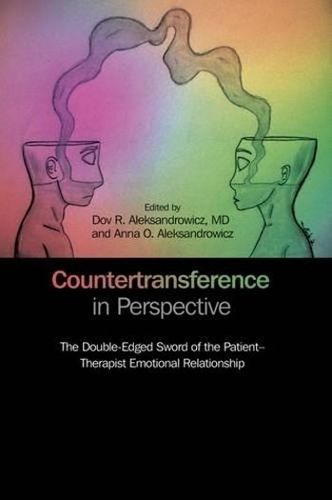Readings Newsletter
Become a Readings Member to make your shopping experience even easier.
Sign in or sign up for free!
You’re not far away from qualifying for FREE standard shipping within Australia
You’ve qualified for FREE standard shipping within Australia
The cart is loading…






In psychoanalysis the term countertransference , coined by Freud, describes the complex emotional relation between therapist and patient. The term is nowadays used in a broad sense, referring to the entire range of emotions experienced by the therapist/analyst covering many types of therapeutic process. Today’s mental-health practitioners are called upon to deal with a wide variety of challenges, some of them highly emotionally-charged, such as child abuse, gender identity or catastrophic loss. This book comprises three main parts: Part I – The History of Countertransference; Part II – The Clinical Challenge and Part III – The Biological Roots of Counter- transference. After essays in Part I introducing the subject and the history of the concept, as reflected in the classic literature (Kernberg, Heimann, Searles, Balint and Main), Part II presents a range of clinical challenges, analysed by contributor colleagues with extensive experience in these and similar issues. It also addresses Holocaust survivor issues, and child survivor experiences of the Nazi euthanasia programme. The study of counter-transference, like other psychoanalytic issues, has recently become enriched by the striking advances in the study of the living brain and of animal behaviour (the published works of Panksepp, Hoffer). Part III engages with recent findings regarding the biological roots that have implications for the understanding of counter-transference. A Summary to the volume presents the overall conclusions to the findings presented in the three parts. The book is intended for mental health and other human service practitioners, such as physicians, educators, jurists and human resource managers.
$9.00 standard shipping within Australia
FREE standard shipping within Australia for orders over $100.00
Express & International shipping calculated at checkout
Stock availability can be subject to change without notice. We recommend calling the shop or contacting our online team to check availability of low stock items. Please see our Shopping Online page for more details.
In psychoanalysis the term countertransference , coined by Freud, describes the complex emotional relation between therapist and patient. The term is nowadays used in a broad sense, referring to the entire range of emotions experienced by the therapist/analyst covering many types of therapeutic process. Today’s mental-health practitioners are called upon to deal with a wide variety of challenges, some of them highly emotionally-charged, such as child abuse, gender identity or catastrophic loss. This book comprises three main parts: Part I – The History of Countertransference; Part II – The Clinical Challenge and Part III – The Biological Roots of Counter- transference. After essays in Part I introducing the subject and the history of the concept, as reflected in the classic literature (Kernberg, Heimann, Searles, Balint and Main), Part II presents a range of clinical challenges, analysed by contributor colleagues with extensive experience in these and similar issues. It also addresses Holocaust survivor issues, and child survivor experiences of the Nazi euthanasia programme. The study of counter-transference, like other psychoanalytic issues, has recently become enriched by the striking advances in the study of the living brain and of animal behaviour (the published works of Panksepp, Hoffer). Part III engages with recent findings regarding the biological roots that have implications for the understanding of counter-transference. A Summary to the volume presents the overall conclusions to the findings presented in the three parts. The book is intended for mental health and other human service practitioners, such as physicians, educators, jurists and human resource managers.